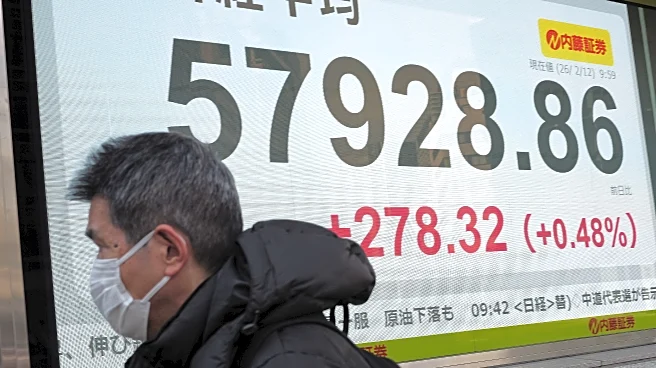Rapid Read • 7 min read
The European Union has decided to maintain restrictive measures against Iran due to its non-compliance with the Joint Comprehensive Plan of Action (JCPOA). Despite the initial lifting of sanctions following the JCPOA's implementation, Iran's failure to meet its commitments has led the EU to uphold existing sanctions related to nuclear proliferation and missile activities. The EU's decision follows reports from the International Atomic Energy Agency (IAEA) indicating Iran's non-compliance since 2019. The EU continues to engage in diplomatic efforts to address these issues, while maintaining sanctions that were initially lifted under the JCPOA.
AD
The EU's decision to maintain sanctions on Iran underscores the challenges in ensuring compliance with international nuclear agreements. This move affects Iran's economy and its ability to engage in international trade, potentially leading to further economic isolation. The decision also highlights the EU's commitment to non-proliferation and its role in global diplomatic efforts. The situation impacts international relations, as stakeholders assess the implications for regional security and the future of the JCPOA.
The EU will continue to monitor Iran's compliance with the JCPOA and engage in diplomatic efforts to resolve the issues. The upcoming Transition Day in 2023, which was supposed to trigger the lifting of remaining sanctions, may be affected by Iran's non-compliance. The EU's decision to maintain sanctions could lead to further diplomatic negotiations or actions by other JCPOA signatories. The international community will watch for any changes in Iran's nuclear activities and the EU's response.
AD
More Stories You Might Enjoy













